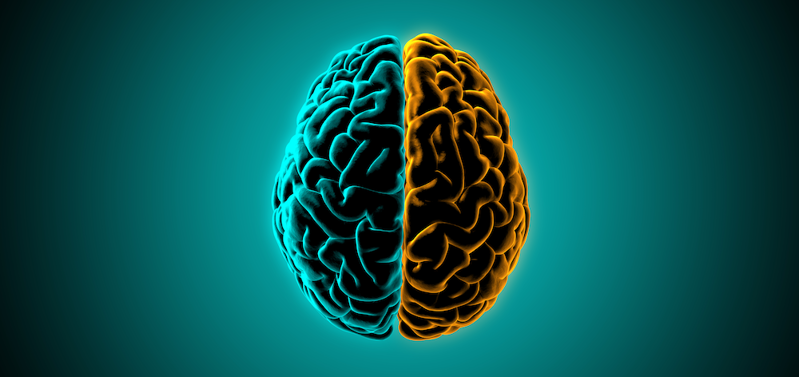
How likely is it for right handed parents to have left handed children?
June 6, 2023

- Related Topics:
- Complex traits,
- Environmental influence,
- Handedness
A high school student from the UK asks:
"How likely is it for two right handed parents to have two left handed children?"
In short, it’s entirely possible for two right-handed parents to have a left-handed child. And it’s also possible for two left-handed parents to have right-handed children.
We don’t fully understand what causes someone to be left or right handed. But we do know a wide variety of factors are involved, only some of which are genetic. That makes it hard to predict exactly how it will be inherited in any given family. Read on to find out more about all the possibilities!
A brief introduction to handedness
Overall, around 10% of people are left-handed, while almost 90% of people are right-handed.1 Ambidexterity — equal comfort with both hands — is far more rare. This tendency for people to have greater ability and comfort in using one hand over the other tasks is also called handedness.
So what causes someone to be left or right handed? Well, we don’t fully know, but it seems like the phenomenon has its roots in the brain. A groundbreaking study in 2021 examined almost 32,000 brains, and observed that the right side of the brain was more prominent in size in left-handers than right-handers. Similarly, in right handers, the balance was shifted towards the left side.1
This was an interesting result, because we already knew that the left side of the brain controls the right side of the body, and vice versa. When they looked closer at what those areas of the brain do, they saw that many of the regions are specifically active when people do hand and finger-based movements.
Other parts of the brain contributing to this asymmetry were important in memory, language, mood, and several other important brain functions. Indeed, handedness has been shown to correlate with a variety of disorders and conditions, including schizophrenia and dyslexia.2
Although scientists are making great strides in studying brain growth and development, we are still a long way from fully understanding the complex causes of handedness.
All this to say: the causes of handedness are not simple. Instead, it’s a highly complex process, and one that is inextricably linked to a variety of other bodily functions.

So how much is genetic?
So how much of handedness is actually genetic? After all, that’s the main way to determine how likely two right-handed parents are to have left-handed children!
Scientists have disagreed over the total contribution of genetics to handedness variation. Some studies estimated genetics only explains 1%-5% of the differences between people.4,5 Other studies estimate genetics matters as much as 25%.6
So far, scientific studies have identified dozens of genes as having some level of association with handedness. One notable example is a gene called PKSC6, which is involved in regulation of asymmetry between the left and right sides of the body.2 Another is CNTN3, which is involved in nervous system development. Several genes related to structures called microtubules, which are known to influence brain asymmetry, were also implicated.1
Regardless, it’s clear that genetics isn’t the only relevant factor. Let’s go over some other possible causes.

What else causes handedness?
If something cannot be fully explained by genetics, we need to look at other factors. As with the genetic causes, though, our understanding of this is quite limited.
A large-scale study found that left-handedness was associated with a variety of factors, including: being male, being part of twins or triplets, not being breastfed, and being born in summer. It is also possible that certain cultural practices play a part.4
However, each of these things only conveys a very small effect (if at all). And they certainly don’t account for everything not explained by genetics, so we still have a lot to learn.
Wrapping it all up
So exactly how likely is it for two right-handed parents to have two left-handed children?
Of course, with only 10% of the population, left-handedness is rare in general. And since it’s at least a tiny bit genetic, two right handed parents would make it more unlikely. However, remember that in this case, genetics doesn’t explain everything. It’s very possible that both children were exposed to the same environmental conditions that promoted left-handedness. Or, it could just be random good luck!
Ultimately, we just don’t know enough about the causes of handedness. The best I can do is say it’s uncommon but certainly not impossible.
Read More:
- Medline: Is handedness determined by genetics?
- Psychology Today: Left-Handedness Is Influenced by Early Life Factors
- McGill: Are You Left-Handed? Science Still Yearns to Know Why
- Is your dominant hand something you’re born with or something you develop?
- What are the genetics of being right vs left handed?

Author: Aman Patel
When this article was published in 2023, Aman was a PhD candidate in the Department of Computer Science, developing Artificial Intelligence approaches to study evolution and gene regulation as part of Anshul Kundaje’s laboratory. He wrote this answer while participating in the Stanford at the Tech program.
 Skip Navigation
Skip Navigation
